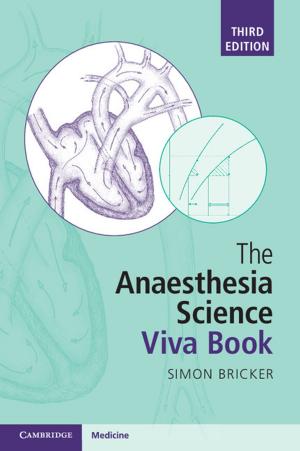Back to Life, Back to Normality
Cognitive Therapy, Recovery and Psychosis
Nonfiction, Health & Well Being, Psychology, Clinical Psychology, Medical, Ailments & Diseases, Mental Health| Author: | Douglas Turkington, David Kingdon, Shanaya Rathod, Sarah K. J. Wilcock, Alison Brabban, Paul Cromarty, Robert Dudley, Richard Gray, Jeremy Pelton, Ron Siddle, Peter Weiden | ISBN: | 9780511738104 |
| Publisher: | Cambridge University Press | Publication: | March 12, 2009 |
| Imprint: | Cambridge University Press | Language: | English |
| Author: | Douglas Turkington, David Kingdon, Shanaya Rathod, Sarah K. J. Wilcock, Alison Brabban, Paul Cromarty, Robert Dudley, Richard Gray, Jeremy Pelton, Ron Siddle, Peter Weiden |
| ISBN: | 9780511738104 |
| Publisher: | Cambridge University Press |
| Publication: | March 12, 2009 |
| Imprint: | Cambridge University Press |
| Language: | English |
• Written specifically with sufferers and carers in mind, to help them understand and apply the basic concepts of cognitive therapy for psychosis. • Illustrates what it is like to have common psychosis and how people's lives can be restored using therapy. • Increases understanding of how the psychosis started, and the factors that worsen symptoms or increase the likelihood of relapse. • Helps the sufferer learn how to control symptoms and delay or prevent relapse. • Includes features and exercises to help sufferers explore their own beliefs and feelings to reflect on the way they cope. • Helps carers know what to say and what to do. • Provides a resource for mental health professionals working with patients, to introduce the approach, support ongoing therapy and make the most efficient use of appointment time.
• Written specifically with sufferers and carers in mind, to help them understand and apply the basic concepts of cognitive therapy for psychosis. • Illustrates what it is like to have common psychosis and how people's lives can be restored using therapy. • Increases understanding of how the psychosis started, and the factors that worsen symptoms or increase the likelihood of relapse. • Helps the sufferer learn how to control symptoms and delay or prevent relapse. • Includes features and exercises to help sufferers explore their own beliefs and feelings to reflect on the way they cope. • Helps carers know what to say and what to do. • Provides a resource for mental health professionals working with patients, to introduce the approach, support ongoing therapy and make the most efficient use of appointment time.















